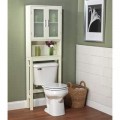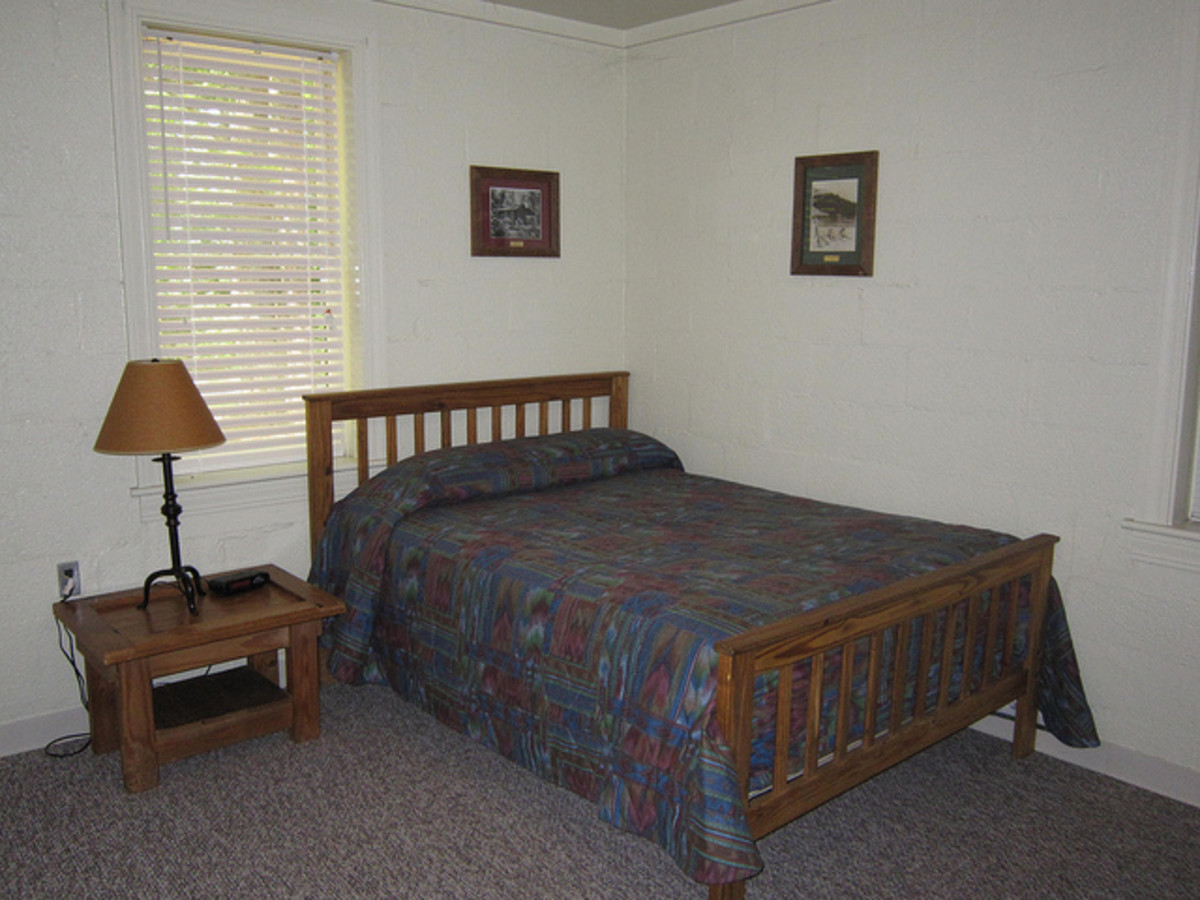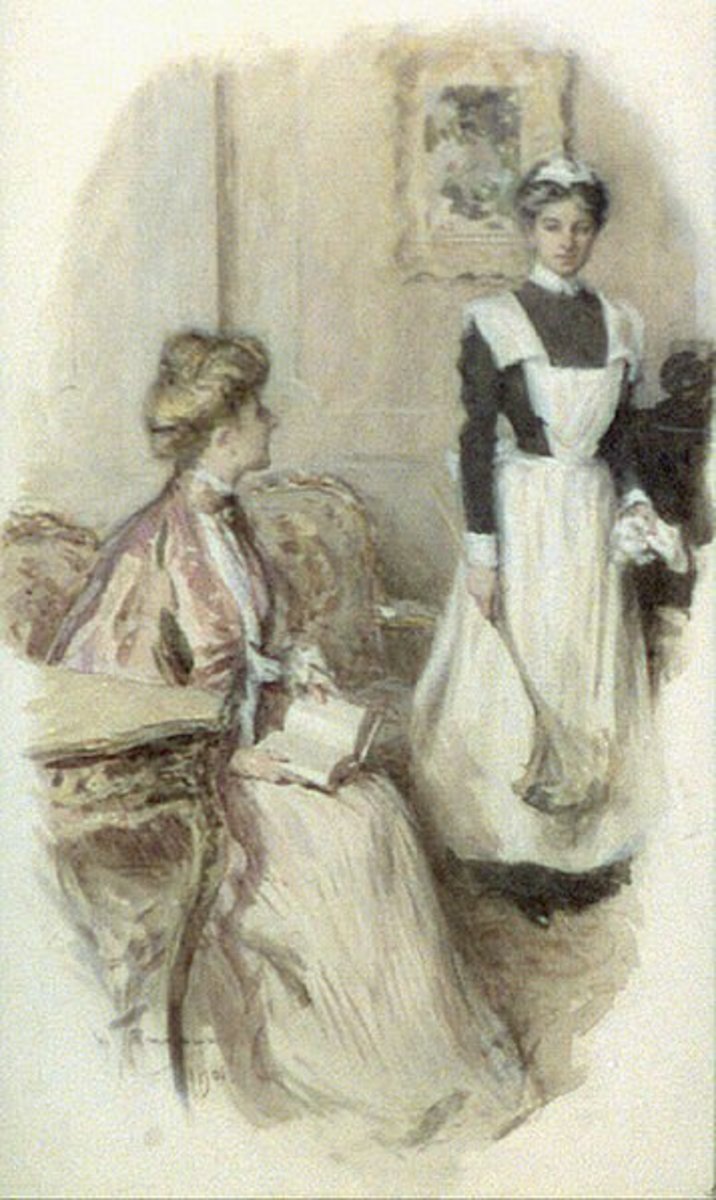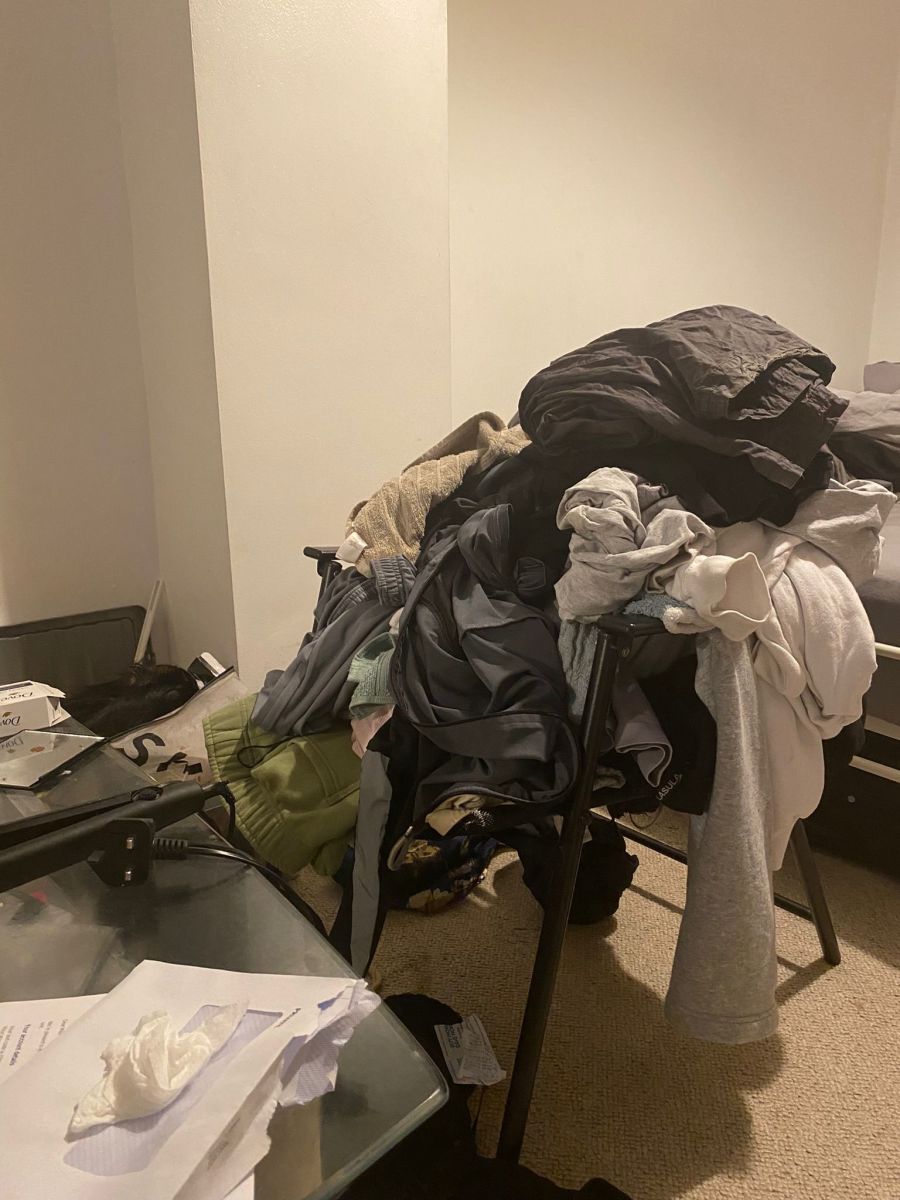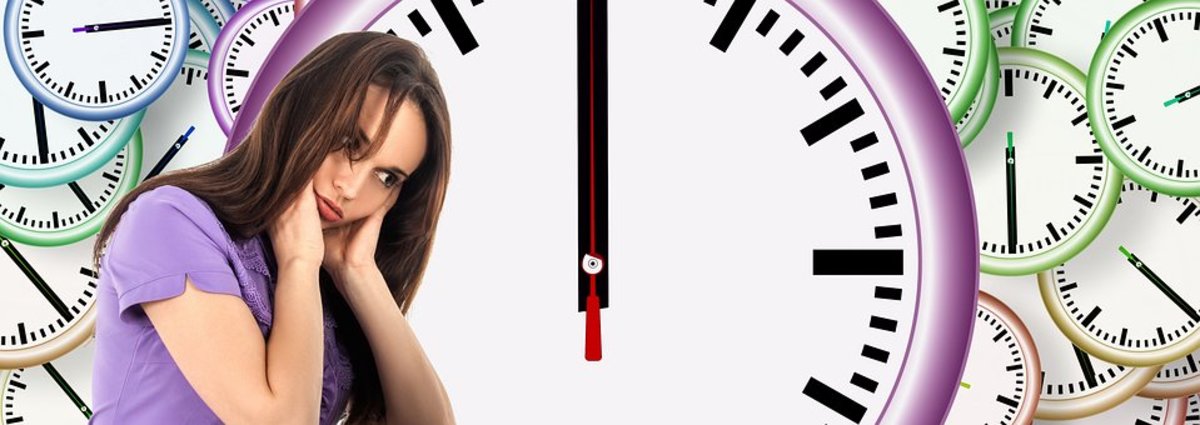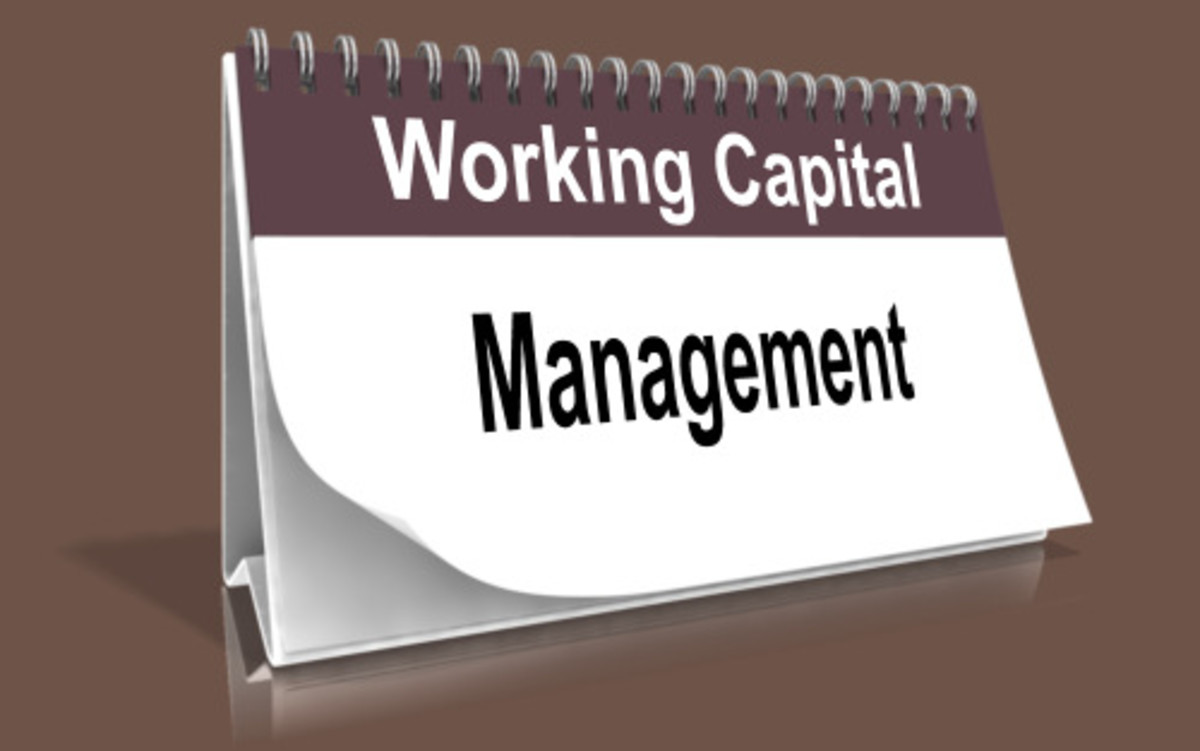Messy Desk? Let Your Desk Clean Itself
Is this your desk?
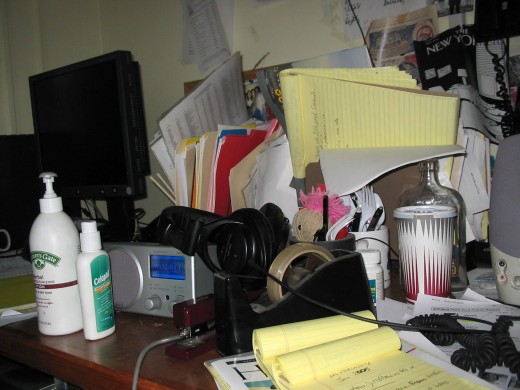
A Clean Desk Creates More Time - A Cluttered Desk Wastes Time
This article is one of a series on the subject of time management by creating more time. Yes, we all have but 24 hours in a day, but we can actually create more time by altering our perception of it. Time is nothing but perception, and that perception changes with circumstances. Time flies by for an old person, while a child perceives time as a plentiful thing.
Your cluttered desk robs you of time because it’s covered with those little things that you have forgotten to schedule, but that you know are there. It’s worse than that because you are only vaguely aware of what problems lurk in the debris on your desk. Good time management demands that you have a clear space in front of you. Every time you look at your desk you have the sluggish feeling that time is getting away from you. Have you ever met people who tell you that they know where everything is amidst the clutter on their desks? No, they don’t, unless they’re savants that can see through paper. In a stack of papers, by the time a pile gets three sheets deep, you haven’t the foggiest idea what’s there. It’s one big time robber.
Many people hate to clean off their desks, and that’s understandable. All of those decisions: do file this, act on it, throw it away? What to do?
Let Your Desk Clean Itself—It Will if You Let It
Time management begins with clutter management. Here’s how to let your desk clean itself. Warning: this might sound crazy, perhaps childish, even imbecilic, but what can be crazier, more childish, or more imbecilic than a desk that looks like the inside of a garbage truck? You might want to do this exercise when none of your colleagues are around, lest they call security assuming that you have suddenly lost your marbles.
Let the Game Begin
Here’s what to do: reach out and grab the closest thing that’s on your desk. It may be an unopened envelope, a paper clip, a coaster, an old theater ticket or a magazine. Ask the object, out loud, “Where do you want to go?” That crap on your desk knows where it belongs, and for every object that finds a home, you have created more time for yourself by getting rid of the clutter on the desk, as well as the clutter in your head.
Here’s why this works: the self-cleaning desk is a game. Make it fun. When your desk allows itself to get cluttered (see, you’re shifting blame to the desk), you sometimes get angry and heap four-letter words on the object, as in: “What the %&@# are you doing here? Where do you want to go?” A game calls out to be played, and this is true with the self-cleaning desk. The drudgery of deciding what to do with all that stuff starts to go away because we’re hardwired to complete games that we started. It can be played silently, with you thinking at the object, “Where do you want to go?” But that’s no fun. Talk to the stuff.
The game is played alongside traditional organization techniques. Barbara Hemphill, founder of the Taming the Paper Tiger organizing system, suggests that for each object you touch, you make a decision using the acronym FAT: File, Act, or Toss. The Act stuff—items that require attention—then go into an A, B, or C file, depending on their importance. Don’t worry. The stuff on your desk will tell you. Who said time management has to be boring?
The Paper Tiger is a software program worth checking out. It seems as if it’s designed for the self-cleaning desk game. Instead of filing things into alphabetical folders, you use the software to put keywords into a database. Say, for example, you want to look up an Allstate insurance policy. You plug allstate or insurance into a search field, and the software tells you it’s in file 561. When you’re letting your desk clean itself, the stuff on your desk will provide you with the keywords. It takes a few days to change a filing system from an alphabetical one to a keyword based system, but it can be well worth the investment of time. See papertiger.com.
Your clean desk will reinforce your commitment to keep it that way because of the wonderful experience that you have created more time. When you look at your clean desk, you will have an amazing feeling that all of a sudden you have more time. That’s because you do, and your desk created it for you. A minute is still a minute, but you have the perception of more time, and let’s face it: time is perception. This technique should be a regular part of your time management chores.
So what are you going to do with all of the new time that you have created?


